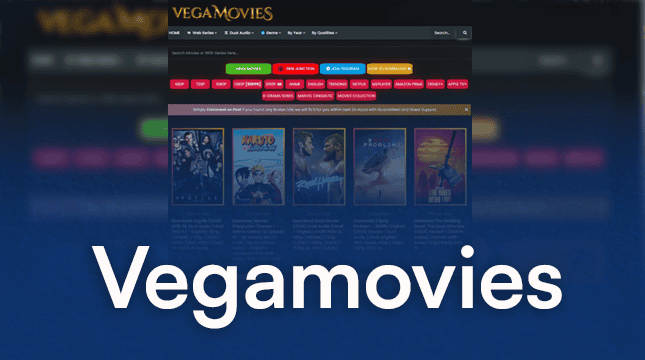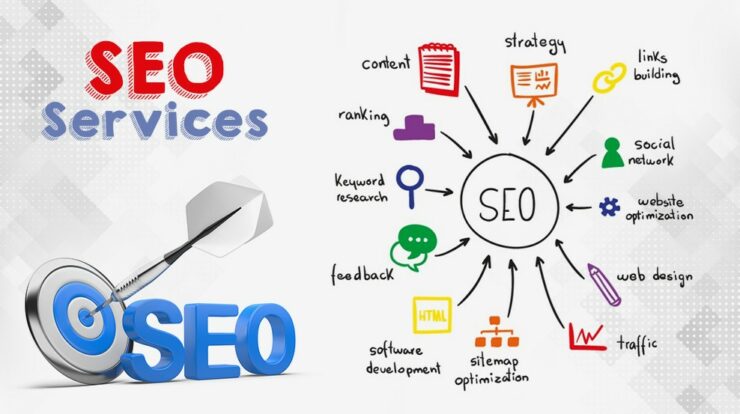
Times are tough with the new Coronavirus pandemic landscape. Nearly every business is feeling the pinch to make budget cuts, especially small business owners.
In order for your business to survive, you’re going to have to take stock of your resources and reallocate them wisely in order to ride this thing out. It makes sense to try to get the most out of your budget and resources, but some are finding this to be quite tricky, especially if judgement becomes a little clouded when the panic button has been pressed.
So, what is the right way to do this? If you have to cut your budget, where should you start? For some, the decision may seem obvious, but before you start hacking that budget down like some kind of economic lumberjack, it’s important to gather and analyze all the information. And the deeper you dive into it, the more you may start to see things in a whole different light.
1. Focus Your Marketing Efforts On Your Customer’s Needs
When a crisis hits, it’s easy to panic and focus inward for survival, but now is the time to be smart and focus outward on your customer base. Now you might be thinking “Um, what customers? Have you even seen the economy lately?” But this is about retaining your existing clients as much as it is about gaining new ones.
Even newbs know that it’s cheaper to retain customers than to gain or lose them, so now is the time to start working on customer satisfaction and upselling, while being mindful of where you can best serve your clients today. Turn your attention to customer needs and focus your marketing strategy on where your target market is now as opposed to the good old PPD (pre-pandemic days).
Forget the status quo, now is the time for creative thinking and innovation. You may need to tweak or add services and products or find a whole new segment of the market that you can now offer products and services to.
2. Pivot to Digital Marketing
We’re all forced to live in an online world right now, so make the most of it and go where the people are (no social distancing required). If you haven’t already done so, consider shifting your small business marketing efforts to include these effective digital content marketing strategies.
Email Marketing—You might have heard that email is dead, but the statistics are proving the naysayers ever so wrong. Not only is email marketing alive and well, it’s thriving. According to the Direct Marketing Association (now the ANA), email marketing delivered a $38 ROI for every dollar spent, making it well worth the effort. And if you implement the right A/B tests, you’ll likely see positive results even faster.
Social Media Marketing—This modern day “water cooler” is where all the talk happens, making it perfect for word-of-mouth type marketing to your target audience. Here’s your chance to connect with customers on a more personal level and let them know you’re there for them during times like these. Depending on your industry, you may find a better response from your target audience on social networks like LinkedIn. We recommend going where your audience hangs out the most. This is also a great opportunity to test the marketing analytics of new trends like video and Stories.
Content Marketing (Blogging)—Another way for marketing teams to reach out to customers and prospects is to provide them with relevant information through valuable content. If you’re already on the blog train, expand your reach through guest post using searching Write for us Technology, Write for us Online Gaming, Submit a guest post technology, and leave high-value comments on relevant Q&A sites like Quora and Reddit. This allows you to establish relationships and drive traffic to your own blog. Also, allow for comments on your own blog posts to heighten valuable interaction with your customer base.
Paid Ads (if you have the budget in your marketing spend)—Free online marketing is great, but if you can swing it, paid advertising through Google Adwords, and Facebook PPC can be very effective marketing tools and produce a great ROI, when done correctly. Ad campaigns reach a more targeted audience, helping you to generate leads that are more likely to convert.
Landing Pages—Forging connections, driving traffic, doling out relevant information is all well and good, but the bottom line is that you want to get customers to buy your products or services. Content landing pages will bring your calls to action front and center, encouraging conversion.
Webinars—Webinars have been gaining in popularity in the past few years and now is the time to take advantage of this additional cross-channel for enhanced face to face connection with customers and leads.
3. Use Data to Make Decisions
The entire decision making process for budget allocation should revolve around data. With this information, you can double down on what’s working and cut what isn’t. With fewer resources available, it’s time to cut the marketing channels that are dead weight based on data and not your gut feelings. So how do you determine what’s working and has to go?
Start by gathering and analyzing information provided by your KPIs (key performance indicators) such as conversion rates, cost per acquisition, and ROI. Which areas are meeting your key business objectives? Measure your bar for success against areas that meet or exceed objectives versus those that are just draining resources with little to no return.
You should look at these numbers monthly to quarterly depending on your sales cycle, so you can course correct quickly when avenues aren’t producing a return. Unlike the more difficult days of yore, we now have analytics tools like Google Analytics, so valuable information like customer behaviors, traffic patterns, and demographics related to your website won’t take an entire month to gather. Google has other handy tools as well, like Google Search Console to help you with search optimization for your site.
The data you glean from these sources should be used to help you optimize your content, readjust your customer journey and funnel stages, create retargeting campaigns for those that fell out of the funnel, and find out which marketing tactics are making the greatest impact on conversions. Then you’ll know what to cut and what to focus your digital marketing budget on.
4. Improve Your Marketing Operations
If you wanted your computer to run more smoothly, you might run it through a defragment—an operation that takes the hard drive data you have and organizes it for more efficient operations. Well, marketing operations is like defragging for your marketing organization.
There are a number of great marketing automation tools that allow you to organize and automate your processes. SharpSpring, Hubspot, Pardot, and Marketo all offer great features to improve your marketing operations. With these tools you can:
Improve SEO and tracking for site traffic and content engagement and do more of what customers like the most.
Strengthen your existing database by cleaning up incomplete or outdated data.
Save money by automating marketing processes to help you free up human and monetary resources.
5. Use Templates as Much as Possible
Here is an excellent place to trim the fat off of your design budget. Your typical MO may have been to hire a developer each time you needed to create website, landing page, presentation deck, or other sales enablement collateral. By creating a standard template, or using a marketing automation tool that offers this feature, you streamline tasks, thereby saving you time and money.
6. Repurpose Existing Content
If you don’t have the budget to create something new, then it’s time to make the best of what you have and transform into something new (like on Food Network where they take old leftovers and transform them into gourmet meals).
Webinars are a great example of this. If the information is still good, why waste it? Re-purpose it into blog posts, social media posts, eBook material, whitepaper documents, videos, presentations—you get the idea. The reverse works just as well, too. Take existing content that we mentioned and create an audience engaging webinar. There’s no shame in reusing and repurposing good information across multiple channels to make your messaging uniform and cast a wider net.
Things change fast in the digital world and relevant information isn’t static. Instead of creating all new content on subjects you covered, re-visit existing content and make it more relevant for present day. In fact, you should have a regular cadence of re-visiting content to make sure it’s still relevant and up to date for current search engine optimization.
7. Stay Engaged with Nurture Campaigns
Automation can make marketing wonderful and breezy, but let’s not throw aside the fact that it is you who must create connections with customers. Customers and trends continue to change so you can’t have a set-it-and-forget-it mentality towards your campaigns, letting AI do all the work for you. Your campaigns are only as effective as the information is relevant. Use current, reliable, and relevant data to personalize new campaigns or refresh old campaigns based on what is happening now to maintain a strong connection with your audience.
8. Invest in CRO (Conversion Rate Optimization)
At the end of the day, no advice is good if your audience isn’t converting. So, increasing those conversion percentages is a key objective and should be honored with the budgetary resources needed to do it. There are several areas you can focus your CRO efforts on:
Email: a/b testing for open rates and click through rates.
Website and landing pages: A/B testing for calls to action, headlines, images, buttons, and more.
Paid advertising: A/B testing for copy and calls to action.
9. Improve Project Management
There’s a reason why companies hire efficiency experts—better efficiency means using less resources while producing a greater return. Become your own efficiency expert through proper organization, standard operating procedures, and using project management tools like Wrike, Bootcamp and Asana. With these tools, you can streamline projects and team communications to save money, time, and maybe even some frustrated hair-pulling.
10. Outsource
Wait- I thought you said don’t spend more money!? It’s true that outsourcing can cost money upfront, but in the long game, it could be the thing that saves you more. Having full-time employees costs far more than outsourcing. Hiring an experts like consultants or agencies can get you access to additional expertise and resources that can drive growth rapidly.
The long and short of it is, without the same cash flow, businesses simply can’t keep spending at the same level as they were before. No doubt it seems like a business-ending problem, but it doesn’t have to be. In the face of these enormous obstacles, industry leaders are using innovative new strategies, and surgical, data-based decision making to create a path to success despite the dwindling economy.



